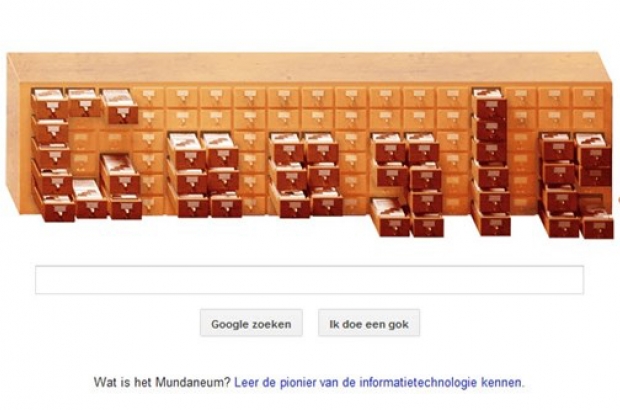- Daily & Weekly newsletters
- Buy & download The Bulletin
- Comment on our articles
Google celebrates Belgian Mundaneum with special Doodle
Internet search giant Google yesterday honoured one of its own most important precursors, with a “Google Doodle” on its Belgian homepage honouring the Mundaneum, the work of two Belgian scientists now considered among the fathers of information technology.
The Mundaneum, located in Mons, was created in 1910, arising from an idea dating back 15 years before by two lawyers, Paul Otlet and Henri La Fontaine. Their aim was to gather together all humankind’s knowledge in one place, classified according to what they called the Universal Decimal Classification.
Otlet was a writer, businessman, activist and visionary like so many of his period. He was educated at Leuven and Brussels. Among his many achievements, he made the 3x5-inch index card a standard across Europe.
La Fontaine was a Brussels lawyer who, with his sister Nonie, fought for women’s rights. He shared with Otlet an interest in bibliography, and the two became determined to expand the Dewey Decimal system of classification introduced in 1876. Their Universal Bibliographical Repertory catalogued significant facts. In its first year, it built up a database of 400,000 entries. Later it would fill an entire wall of card catalogue drawers and contain 15 million researched and sourced facts.
A century later, Google can now serve up as many sources in a search taking fractions of a second, but the information world of today recognises its debt to pioneers like Otlet and La Fontaine. Yesterday, when the Doodle appeared, would have been Otlet’s 147th birthday.



















